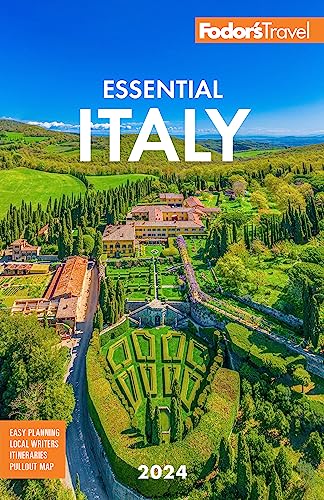Eating and Drinking Well in Puglia, Basilicata, and Calabria
The Mediterranean diet was born here. Southern Italian cuisine is based on seasonal local produce, so don’t expect to find, say, grapes in May or watermelon in November, although the mild climate and fertile soil, linked to modern farming methods, means that most vegetable products have a long growing season.
Traditional cuisine reflects its peasant origins, with hearty homemade pasta, thick bean soups, and grilled meat and fish. The emphasis, though, is on vegetables, with zucchini, eggplant, beans, sweet peppers, and at least a dozen varieties of tomatoes transformed into imaginative dishes. Naturally, the local olive oil is never lacking on the table. Dribbled over soup or a thick chunk of bread, it can transform the plainest dish into a gourmet treat. One defining principle of Italian cooking is to use excellent ingredients in simple preparations. That philosophy reaches its purest expression here.
The best—and cheapest—meals are often found at a family-run trattoria, perhaps with a sign above the door proclaiming, "cucina casareccia" (home cooking). Dishes will be strictly seasonal, so don’t expect an extensive menu, but these humble establishments manage to create flavors rivaling those of any highbrow restaurant. Take your waiter's suggestions and leave yourself in the hands of the chef (who will most likely be his wife or mother).
More upscale establishments turn local ingredients into deliciously inventive dishes. Many such restaurants are set in breathtaking locations, yet prices remain relative bargains compared to similar places farther north.
Fabulous Fava
Puré di fave e cicorielle, a puree of fava beans topped with sautéed chicory, is unique to Puglia and Basilicata. The simple recipe has been prepared here for centuries and continues to be a staple of the local diet. The dried favas are soaked overnight, cooked with potatoes, seasoned with salt and olive oil, and served warm with wild green chicory, often with a sprinkling of ground peperoncino (chili pepper). Mix it together before eating, and wash it down with a glass of primitivo or aglianico.
Meat
In addition to its excellent beef, Basilicata is known for its salsicce lucane (sausages), seasoned with salt, cayenne pepper, and fennel seeds. Enormous grills are a feature of many of the region's restaurants, infusing the dining area with the aroma of freshly cooked meat. Adventurous eaters in Puglia should look for turcinieddhri (a blend of lamb's innards) and pezzetti di cavallo (braised horse meat).
Pasta
Puglia is the home of orecchiette with cime di rapa (broccoli rabe) and olive oil, a melodious dish that's wondrous in its simplicity. Try also cavatelli and strascinati (rectangles of pasta with one rough side and one smooth side).
Peppers
Calabria is known for its use of little hot peppers that can range from a mild sprinkling in tomato sauce to the tongue-scorching 'nduja (spicy pork salami) paste. Local cured meats like soppressata (dried spicy salami), and salsiccia piccante (hot sausage), often sold by street vendors on a roll with peppers, onions, french fries, and mayonnaise, are all spiced with peperoncini.
Seafood
Fish can be grilled (alla griglia), baked (al forno), roasted (arrosto), or steamed (in umido). Among the highlights are delicate orata (sea bream), branzino (sea bass), gamberi rossi (sweet red shrimp), and calamari. Puglia is the home of cozze pelose (hairy-shelled mussel), and Calabria’s version of sushi is freshly caught ricci di mare (sea urchins), considered a delicacy—and an aphrodisiac!
Wines
Puglia produces around 17% of Italy's wine, more than the output of Australia. In the past, most of it was vino sfuso (jug wine), but over the past 15 years, producers have been concentrating on quality—with impressive results. The ancient primitivo grape (an ancestor of California's zinfandel) yields strong, heady wines like Primitivo di Manduria. The negroamaro grape is transformed into palatable rosati (rosés), as well as the robust Salice Salentino. Pair a dessert with the sweet red Aleatico di Puglia or Moscato di Trani.
In Basilicata, producers use the aglianico grape to outstanding effect in the prestigious Aglianico del Vulture. In Calabria, they've worked wonders with gaglioppo.




